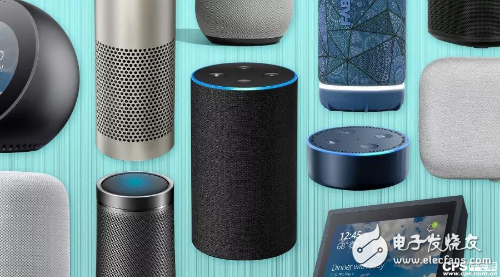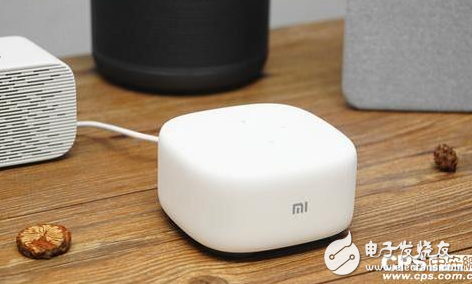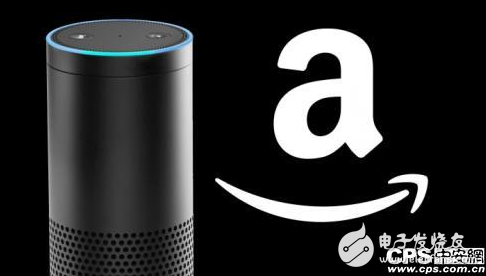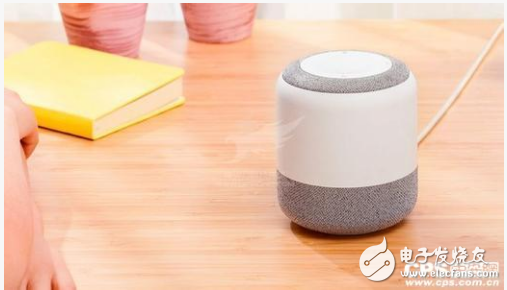The rapid development of smart speakers has made it a hot topic, and the opener Amazon Echo has gradually lost its market share-not only because of Google, but also because of new players in China.
In China, the low-cost, high-capacity smart speaker market is blurring the boundaries of competition. Recently, the vice president of MediaTek predicted that the domestic market will reach 15-20 million. Behind the huge scale and fierce competition is the rise of voice assistants.

Foreigners absent from local carnival boss lore
In the world, smart speakers, a new category of consumer electronics, have become more and more common and have a high degree of commercialization. The early contestant Amazon's market share was not only squeezed by Google, but also faced with an endless stream of new players in China.
As the world's second largest consumer market, China reached US$4.3 trillion in consumer spending in 2016 alone (the United States ranked first with US$125,000, and Japan was third with US$2.7 trillion). In terms of smart homes, according to Juniper, a research institute, the Chinese market will reach US$23 billion in 2018. Among them, the smart speaker market based on artificial intelligence (AI) voice assistants will be an important part.
As China's smart home market heats up, established companies such as Google and Amazon are ushering in new competition.
In fact, neither Amazon’s Echo nor Google’s Google Home has penetrated into China. In addition to the serious supervision that American technology companies face in China, the difficulty of Chinese natural language processing technology (130 dialects and 30 written languages) also makes speech recognition for this market a huge challenge.
At present, among the large US technology companies, only Apple's Siri supports Mandarin on the iPhone side, and its smart speaker Homepod only supports English, which is not available in China. The absence of American technology companies provides a huge amount of blank space, and local players are also taking advantage of this gap to conquer cities and land.

In China, smart voice is one of the four key areas of the first wave of artificial intelligence applications planned by the government (others are health care, smart cities, and autonomous driving); China’s large local technology companies are also accelerating their entry and have achieved remarkable results. Effectiveness.
On the last Double Eleven, Alibaba’s Tmall Genie tested the Chinese smart speaker market at a price of $15. Baidu also recently reduced the price of its own smart speaker from $39 to $14. The low-price strategy of local bigwigs directly suppressed small startups and hardly left a way to survive.
The new model blurs the boundaries of competition
In China, there are two modes of entry for new players in the smart home market:
1. On the one hand, they cooperate with American technology companies to pair their hardware with artificial intelligence assistants such as Cortana and Alexa to sell smart speakers outside of China to seize global market share.
2. On the other hand, they cooperate with China's intelligent voice startup companies, or develop indoor conversational artificial intelligence software only for the Chinese market in China. China is not only a fertile field that blocks most of the "True America and Technology Bigwigs" market pressure, it also provides a huge amount of data nutrients for AI applications, and supports "small steps, iterative trial and error" in terms of technology and models.
The two-pronged strategy has enabled Chinese companies to act as hardware vendors in the usual way, while becoming the holders of power in the local market. The boundaries of competition among global companies have become blurred. They may be both competitors and collaborators.
The following are a few typical business cases:
Lenovo: Teaming up with Amazon
In order to enter the smart speaker market, Lenovo cooperated with Amazon to launch a smart speaker with built-in Alexa in the United States. The selling price is $50 cheaper than the Amazon Echo of the same size in the same period, and it is said to have better sound effects.
This move is consistent with Amazon's recent strategic trend, which is to use third-party hardware manufacturers to sell Alexa as voice software to expand market penetration and user base.
In order to further improve its hardware capabilities, Lenovo has also cooperated with audio equipment giant Harman Kardon (Harman Kardon) to produce high-quality speakers. As a subsidiary of Samsung, Harman Kardon has also established a cooperation with Amazon to sell its own smart speakers equipped with Alexa, which further blurs the boundaries of competition in the global market.
For domestic sales, Lenovo uses the voice recognition software of local intelligent voice startup AISpeech to build smart speakers.

Go out and ask: Back to Google
In 2015, Google went out to ask (Mobvoi) with US$60 million in funding. This was Google's first direct investment in China. Go out and ask questions around smart voice, producing smart watches, smart speakers and smart mirrors.
Globally, TicHome, a smart speaker product that is out-of-home, has Google Assistant embedded in it; in China, TicHome, a smart speaker product that is out-of-door, is embedded with its own conversational artificial intelligence software.
It is worth noting that Google got a small stake in JD.com this month and is rumored to be paving the way for the sales of Google Home in China. Jingdong itself, with its early launch of Dingdong speakers, has also become the main path for China's smart speaker market.
Xiaomi: A careerist who is looking for cooperation
Unicorn Xiaomi is entering the late stage of entrepreneurship. In addition to its main business mobile phone, it is also expanding its smart ecosystem. Currently, Xiaomi is cooperating with Amazon Alexa to develop its own artificial intelligence assistant, and may integrate Microsoft Cortana to form a new smart speaker product line.
The cooperation between Xiaomi and Microsoft is expected to help Microsoft narrow the gap between its rivals (hosts) and Google and Apple in the smart speaker competition.
In addition to smart phones and smart speakers, Xiaomi has also developed new consumer electronics product lines such as smart TVs, smart sweepers, smart lamps, and even rice cookers. Considering its focus on artificial intelligence (recently established an AI team of 500 people), we may soon see its intelligent voice assistant integrated into a series of other hardware products.
BAT enclosure war
As the three most influential science and technology giants in China, Baidu, Alibaba, and Tencent are accelerating the strategic layout of artificial intelligence, covering a series of "AI+" industries from smart medical to autonomous driving, including intelligent voice.
Baidu: Deuros marches into Japan and South Korea for nuclear
Baidu is the first company in BAT to call out the AI ​​strategic slogan. Its goal is to turn its DeurOS platform into the world's main conversational artificial intelligence software, directly competing with Amazon Alexa.
In Q4 last year, Baidu launched the first smart speaker product "Raven H" (Raven H), named after the AI ​​assistant startup Raven Tech it acquired last year.
Although Baidu holds the AI ​​platform DeurOS, it relies on external partners for its smart speaker hardware design. Raven is a product of a collaboration between Raven Technology and a Swedish company, Teenage Engineering. The design goal is to look different from other smart speakers on the market. (The author’s inner OS in the second form: Why is no one positioned as a motionless robot, and the embedded module is turned into a "hand-made"?!)
In addition, Baidu also acquired Kitt.ai, a natural language processing startup headquartered in the United States, which was originally established with Amazon Alexa Fund (Amazon Alexa Fund), is it very subtle?
In Q1 this year, Baidu also launched the first commercial hardware product based on DeurOS in Japan: PopIn Aladdin, a three-in-one speaker, desk lamp, and projector, named after Baidu’s Japanese subsidiary PopIn (well, the Chinese version is separate Three products).
The training data of DeurOS is mainly Chinese data, but after Baidu acquired Japanese input method company Simeji in 2011, it obtained admission tickets to the Japanese smart speaker market (dialogue and grammar). At the same time, Baidu is also applying for patents in South Korea and has already obtained some certifications.
In Q1 this year, Baidu also launched the first commercial hardware product based on DeurOS in Japan: PopIn Aladdin, a three-in-one speaker, desk lamp, and projector, named after Baidu’s Japanese subsidiary PopIn (well, the Chinese version is separate Three products).
The training data of DeurOS is mainly Chinese data, but after Baidu acquired Japanese input method company Simeji in 2011, it obtained admission tickets to the Japanese smart speaker market (dialogue and grammar). At the same time, Baidu is also applying for patents in South Korea and has already obtained some certifications.
Obviously, the company has plans to expand into other countries in Southeast Asia in the future. An obvious example is that patents for intelligent robots (human-computer interaction methods based on artificial intelligence and terminal devices) were filed in Japan and South Korea, rather than major consumer markets such as China and the United States. This thing looks a bit like Amazon's Echo, which combines voice recognition and facial recognition.

Alibaba: use scenario as strategy
Alibaba’s smart speaker journey officially started in July 2017. The company has sold more than 1 million Tmall Genie smart speakers.
The AI ​​assistant of Tmall Genie is AliGenie, which is against Amazon's Alexa. Like Alexa, users can set up 100 skills for AliGenie and implement voice shopping on Ali's e-commerce website. According to the Verge report, many of these commands are "Tmall Genie" in Mandarin.
AliGenie can recognize the objects it "sees" through the camera of the mobile phone, including 40,000 medicine packages, children's book covers, etc. Its medical care function is specially designed for the phenomenon of China's aging and visually impaired patients.
Ali not only positions smart speakers in the field of smart homes, the company also equips 100,000 Marriott International hotel rooms with smart speakers and provides concierge services.
Tencent: Ace WeChat
Tencent has also recently joined the smart speaker competition, and its advantage is obvious, that is, it has nearly 1 billion WeChat users. Therefore, the spokesperson said that the function of Tencent's smart speakers will intervene in WeChat to provide related applications and services, such as the sending of voice messages, and hands-free chat. In the United States, according to the CBI search, Tencent has more than 50 voice patents, including voice processing and authentication methods.
Lao Mei’s market share defense war
The pace of market competition for smart speakers is accelerating. China's affordable products are threatening the status of American technology giants, forcing them who are developing hardware to focus on making AI software better and stronger.
In fact, the giants of artificial intelligence software in China and the United States are facing the same market and even the same partners. (Although Amazon's market share is declining, Alexa has become a stepping stone for many hardware vendors to enter the smart speaker market; and hardware vendors also have sweets, such as Harman Kardon, which "suffers" Amazon and Baidu competing for cooperation.)
This means that the boundaries of market competition are blurring. This can be clearly seen from Sony’s recent actions: it has launched a smart speaker with embedded Alexa, and plans to support Apple Siri and Google Assistant by the end of the year, and also cooperates with Chinese startup Rokid to provide a Mandarin version of the assistant.
There is no doubt that Chinese companies have advantages in smart speakers, but looking at the global market, compared with FAMGA (Facebook, Amazon, Microsoft, Google, Apple), their language database establishment still lacks advantages. If Chinese companies want to gain a place in the global market, moves like Baidu's launch of PopIn Aladdin in Japan are indispensable. Just as CBI predicted at the beginning of the year: It is expected that major technology companies will fight in the non-English voice market in the future.
Zhishi believes that with the presence of domestic BAT leaders, there is not much room for integrated startups. Most small and medium-sized AI voice software and application developers, and even hardware manufacturers, have also entered the stage of standing in line.
Local policy advantages and huge data advantages, as key nutrients for emerging markets, are expected to accelerate the incubation of more mature software and hardware products. The short-term strategic significance may be greater than when it is not yet mature, based on opening up overseas markets. (As the saying goes, there are advantages and don't take the bastard.)
It can be seen that, compared with the technology reliance obtained by Baidu's early entry, Ali and Tencent have aimed at scene-based application/third-party application integration and data flow entrance, which is a more obvious market-oriented approach.
Easy Electronic Technology Co.,Ltd , https://www.yxpcelectronicgroups.com